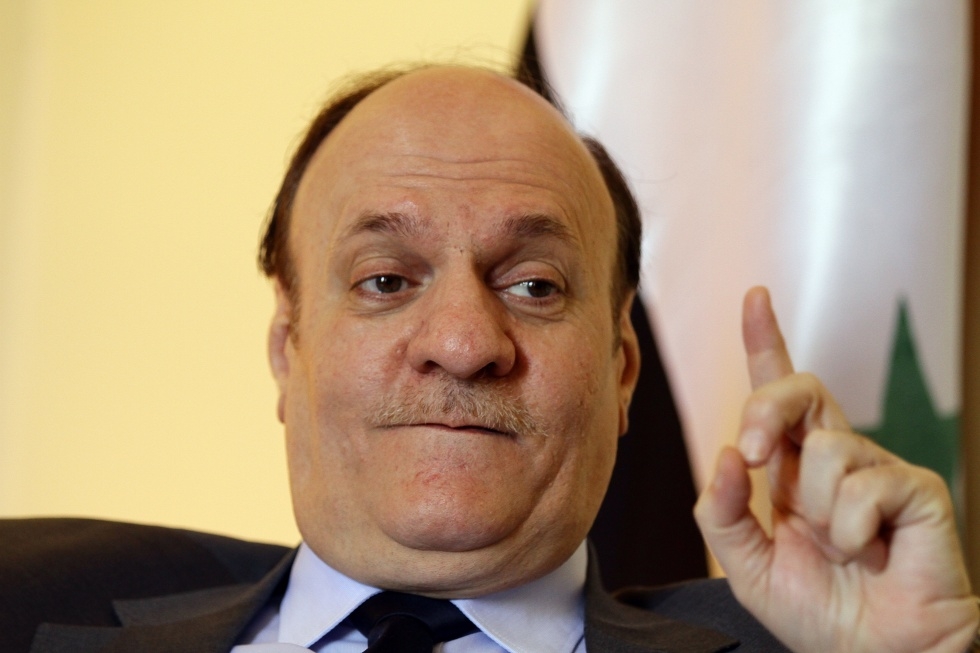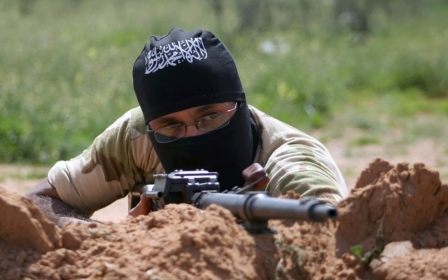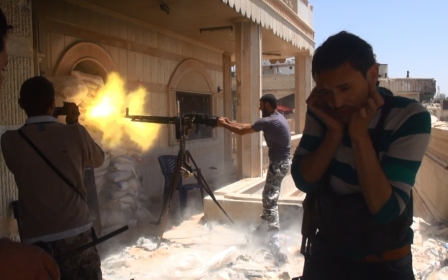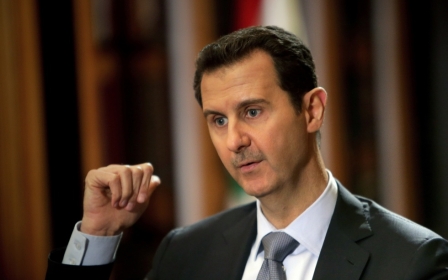Syrian presidential candidate blames wealthy minority for hoarding

By Rim HADDAD
DAMASCUS - A candidate standing against Bashar al-Assad in next month's Syria's presidential election says the country's conflict began because of the regime's poor economic management and a minority elite monopolising wealth.
"Today there is a nationwide war and a foreign plot, but in the beginning, people took to the streets to demand rights. We mustn't forget that," Hassan al-Nuri told AFP in an interview on Tuesday.
He said the authorities mismanaged the crisis from the start. "A lot of things could have been avoided," Nuri said.
"I wish the current president had visited Daraa" in southern Syria, he said of the cradle of the revolution, where Assad could have "organised meetings, not at the presidential palace, but in Daraa itself".
New MEE newsletter: Jerusalem Dispatch
Sign up to get the latest insights and analysis on Israel-Palestine, alongside Turkey Unpacked and other MEE newsletters
"But now... we need to take into consideration that there is a global conspiracy" over Syria, said Nuri, echoing the regime's description of the revolt and ensuing civil war.
"What happened at the start of 2012 [the armed rebellion] made me feel like they [unnamed foreign countries] had been waiting to pounce on Syria."
Nuri is one of three candidates, including Assad and Maher al-Hajjar, standing for the presidency in a 3 June that the incumbent is expected to win.
Denounced by the exiled opposition as a "farce" and by the United States as a "parody of democracy", the election will be held only in regime-controlled areas.
Assad's government has systematically refused to recognise the existence of a peaceful revolt demanding political change.
The regime brands its opponents - armed and non-violent - as foreign-backed "terrorists".
Initial peaceful demonstrations that began in March 2011 later morphed into an armed rebellion after the regime unleashed a brutal and massive crackdown against dissent.
Nuri, who has a PhD from a US university in management, said his election platform focuses on economic reform and battling corruption.
The former minister of administrative development from 2000 to 2002 criticised the authorities for their economic policies.
"The country's wealth has been monopolised by 100 families," he charged.
'Economy based on favours'
These families "are not necessarily close to the political leadership, but the way the social market economy was developed was according to whim and personal favours".
Protesters at the start of the uprising frequently demonstrated near economic enterprises, especially offices of the telecommunications company that belongs to Assad's magnate cousin Rami Makhluf.
In some cases, protesters set fire to properties, seeing the country's economic elite as working hand in hand with the regime.
Nuri said "slacking" in Syria's sprawling bureaucratic institutions had been another reason for anti-Assad protests.
"Assad succeeded on the political side of things, but I cannot agree with his economic, social and administrative performance," he added.
Nuri also said economic factors had contributed "indirectly" to the Syrian crisis.
He criticised "the poor choices made by administrative chiefs who did not understand the people's needs", and called for the creation of a "free and intelligent economy".
Syria's war has killed more than 162,000 people, a watchdog estimates, and caused a terrible economic crisis suffered worst by millions of people trapped in sieges across the country.
"The country needs a real revolution, through the transformation of the economic system," said Nuri, adding that a political solution to the war would not be enough to end the violence.
In his electoral programme, Nuri denounces corruption "which is just as dangerous as terrorism".
Assad has been president since 2000 when he inherited power from his father Hafez, who had ruled for 30 years.
Nuri sees the election is "a test for real change".
"Whoever wins will no longer be able to rule Syria in an exclusive way. To find a solution to the crisis, we will need a genuine multi-party system, not just the facade of one," he said.
"People are afraid to vote for anyone other than Assad.
"I'm a genuine candidate, my candidacy is genuine, and I may win or lose. Other opponents did not have the courage to present their candidacy, but I did."
Middle East Eye delivers independent and unrivalled coverage and analysis of the Middle East, North Africa and beyond. To learn more about republishing this content and the associated fees, please fill out this form. More about MEE can be found here.




